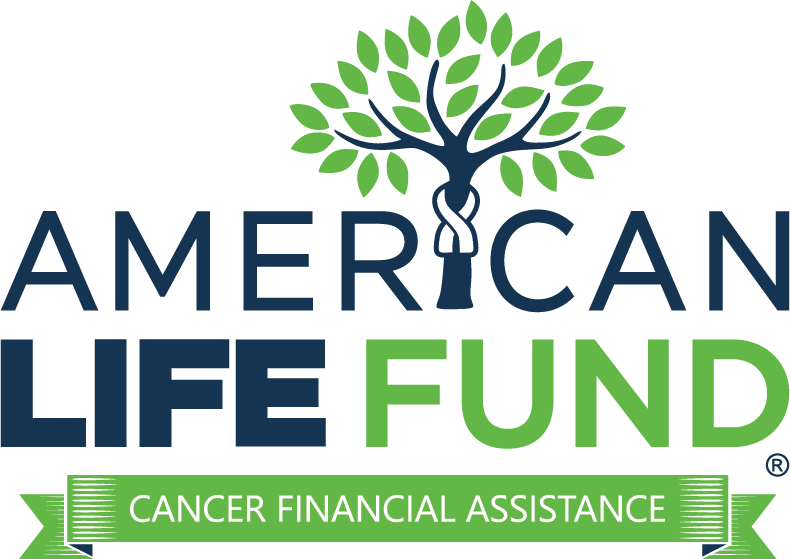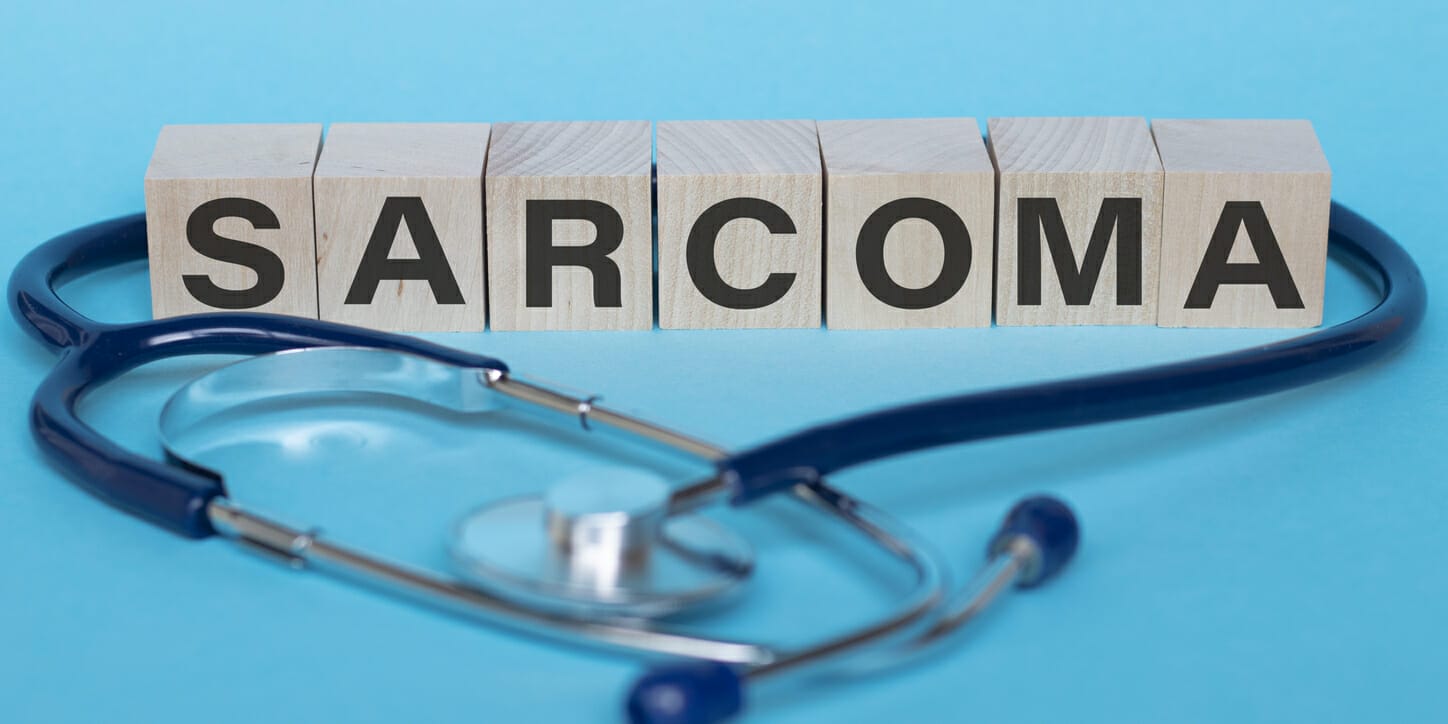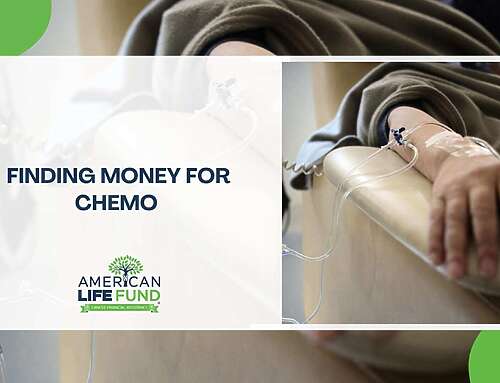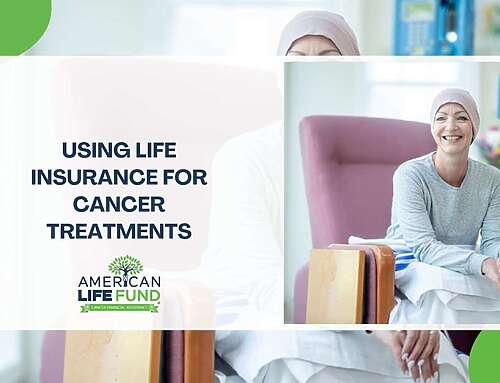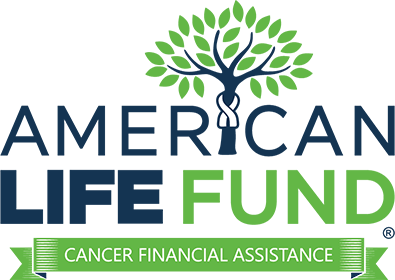If you’re dealing with sarcoma cancer, it’s important to know that there is help available to manage the costs of treatment. First, make sure you understand your insurance details and figure out where you might need additional financial support. Look for assistance programs at cancer centers and from nonprofits that help cancer patients with costs like prescriptions and daily living expenses.
Joining support groups can also provide emotional support and practical tips for handling financial challenges. Apply for grants specifically for sarcoma patients, and always keep in close touch with your healthcare team to help navigate the process. They’re there to support you, allowing you to focus more on recovery and less on the financial stress.
The outline below outlines various financial assistance programs and resources available to patients to alleviate the economic challenges associated with sarcoma cancer care.
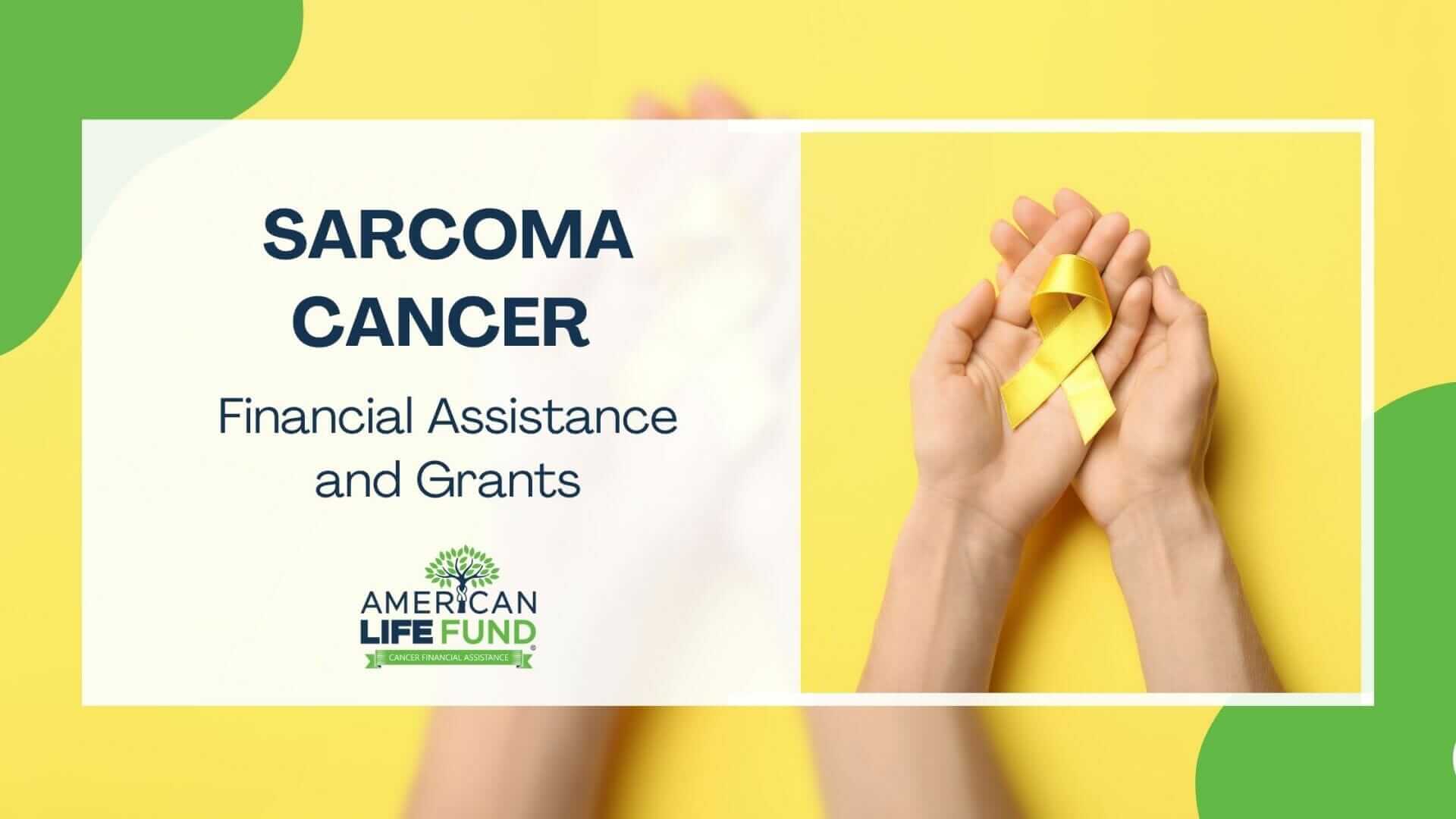
How To Find Financial Assistance For Sarcoma Cancer Patients
Navigating the financial aspects of undergoing treatment for sarcoma cancer can be overwhelming. However, numerous resources are available to provide support. Here’s a step-by-step guide to help you find financial assistance tailored to your needs.
Assess Your Situation
Before seeking financial assistance, assess your current financial situation. Understand your insurance coverage, including co-pays and limitations, and identify areas where you may need additional support. See our blog on relieving the financial burden for cancer patients for more information.
Explore Patient Assistance Programs
Look into programs offered by reputable institutions such as the Anderson Cancer Center, Sarcoma Alliance, and other national nonprofit organizations that specialize in assisting cancer patients, particularly those with sarcoma.
Research National Nonprofit Organizations
Investigate organizations like Kaylee’s Dancing Angels and Genentech Patient Foundation for potential assistance. These national nonprofit organizations focus on providing financial support to individuals undergoing cancer treatment.
Utilize Financial Support Services
Explore financial support services designed to alleviate various burdens, from prescription costs to household expenses. These services often have eligibility requirements, so it’s essential to understand if you qualify.
Connect with Support Groups
Joining support groups can provide emotional support and valuable information on available financial resources. Engage with organizations offering support for young adult cancer survivors and those undergoing active treatment.
Additional Resources and Assistance
Beyond the specific points mentioned above, there are additional resources that help you navigate through the challenges of sarcoma cancer treatment. Explore grant applications, gym memberships, and programs offering free air transportation for medical appointments.
Remember, you’re not alone in this journey. Seeking financial assistance is a proactive step toward managing the economic aspects of your cancer care. Feel free to contact the relevant contacts for personalized guidance and support, which will be provided later in this resource. Check out our blog on finding financial assistance for cancer patient treatment for more information.
Sarcoma Cancer-Specific Financial Grants From Organizations
Dealing with sarcoma cancer brings unique challenges, and specific financial grants are available to provide targeted support. Explore these organizations that offer a patient assistance program tailored for individuals facing sarcoma.
The Anderson Cancer Center
The Anderson Cancer Center provides specialized financial grants for sarcoma patients. These grants aim to alleviate the economic burden of sarcoma cancer treatment, covering various aspects such as medical expenses, prescription costs, and other related financial challenges.
Contact Information:
- Website: Anderson Cancer Center
Sarcoma Alliance
Sarcoma Alliance offers financial grants designed to support individuals specifically dealing with sarcoma. These grants address the unique financial challenges during sarcoma cancer treatment.
Contact Information:
- Website: Sarcoma Alliance
Genentech Patient Foundation
Genentech Patient Foundation focuses on providing financial assistance for medications, including those used in sarcoma cancer treatment. Explore their programs to access support for prescription costs related to sarcoma-specific medications.
Contact Information:
- Website: Genentech Patient Foundation
Kaylee’s Dancing Angels
Kaylee’s Dancing Angels offers financial grants for individuals dealing with sarcoma cancer. These grants aim to address various financial needs, including but not limited to medical bills, living expenses, and other essential costs associated with sarcoma treatment.
Contact Information:
- Website: Kaylee’s Dancing Angels
Triage Cancer
Triage Cancer is a valuable resource for individuals seeking financial assistance during sarcoma cancer treatment. Explore their programs and grants to find comprehensive support tailored to the specific financial challenges of sarcoma patients.
Contact Information:
- Website: Triage Cancer
Government Financial Assistance Programs
The government offers various financial assistance programs to support individuals facing sarcoma cancer. Understanding and accessing these programs can significantly ease the financial burden associated with cancer treatment. Here are some key government assistance programs available for sarcoma patients:
Medicaid and Medicare
Medicaid: A state and federally-funded program providing health coverage for individuals with limited income, including some adults, children, pregnant women, elderly adults, and people with disabilities.
Medicare: A federal health insurance program primarily for individuals aged 65 and older but also covers certain younger individuals with disabilities.
Social Security Disability Insurance (SSDI)
SSDI provides financial assistance to individuals with disabilities, including those diagnosed with sarcoma cancer. Eligibility is based on work credits, and recipients may qualify for Medicare after a waiting period.
Supplemental Security Income (SSI)
SSI is a needs-based program that provides financial assistance to individuals with low income and resources who are aged, blind, or disabled. Sarcoma patients may qualify for SSI based on their financial situation.
State-Based Assistance Programs
Many states offer additional financial assistance programs for cancer patients. These programs may cover various needs, including medical, prescription, and living expenses.
Temporary Assistance for Needy Families (TANF)
TANF provides temporary financial assistance for families in need. While it primarily focuses on families with children, individuals facing sarcoma cancer may qualify for support.

Housing Financial Assistance
Dealing with sarcoma cancer brings not only health challenges but also potential financial strains, especially when it comes to housing. Explore various avenues for financial assistance to ensure stable and comfortable housing during your cancer journey.
Government Support Programs:
- A government program that assists homeowners, including loan modification and refinancing options.
Nonprofit Organizations:
- Offers financial assistance for cancer-related costs, including help with mortgage payments.
Local Community Resources:
Local Charities or Foundations:
- Many local charities or foundations may assist homeowners facing financial challenges during cancer treatment.
- Check with local community centers, religious organizations, or city government offices for potential resources.
Hospital-based Accommodation Programs:
Hope Lodge by the American Cancer Society:
- Provides free, temporary lodging to cancer patients and their caregivers during treatment.
Utility Assistance
Sarcoma cancer patients often face not only medical expenses but also the burden of utility bills. Navigating these financial challenges can be overwhelming, but various assistance programs exist to provide support. Explore options for utility assistance during your sarcoma cancer journey:
Government Programs
Low-Income Home Energy Assistance Program (LIHEAP):
- LIHEAP assists eligible low-income households with heating and cooling energy costs, providing financial relief for utility bills.
- Contact: LIHEAP Website
State Utility Assistance Programs:
- Many states have specific utility assistance programs for individuals facing financial challenges, including cancer patients.
- Contact: Contact your state’s Department of Social Services or local utility providers for information.
Nonprofit Organizations
Modest Needs:
- Modest Needs provides grants for individuals experiencing a temporary financial crisis, including assistance with utility bills.
- Contact: Modest Needs Website
Transportation Assistance
Transportation can be a significant challenge for sarcoma cancer patients, impacting access to vital medical care. Explore the following assistance options to alleviate the burden of transportation expenses during your cancer journey:
Government Programs
Medicaid Transportation Services:
- Medicaid often provides transportation services for eligible individuals to attend medical appointments, ensuring access to necessary cancer treatments.
- Contact: Inquire with your local Medicaid office for information.
State-Based Transportation Assistance Programs:
- Some states offer specific transportation assistance programs for individuals undergoing medical treatment, including cancer patients.
- Contact: Contact your state’s Department of Health or local health agencies.
Nonprofit Organizations
American Cancer Society Road to Recovery:
- This program provides free transportation to cancer patients for medical appointments, ensuring they receive the necessary care.
- Contact: American Cancer Society Road to Recovery
Financial Assistance For Child And Elder Care
Coping with sarcoma cancer involves not only the challenges of the treatment itself but also the responsibility of caring for children and elderly family members. Explore the following organizations and resources providing financial assistance for child and elder care during your cancer journey:
Patient Assistance Programs
CancerCare Financial Assistance Program:
- CancerCare offers financial assistance for child and elder care expenses incurred by individuals undergoing cancer treatment.
- Contact: CancerCare Financial Assistance
Nonprofit Organizations
Family Reach:
- Family Reach provides financial assistance to families facing cancer-related financial toxicity, including support for child and elder care.
- Contact: Family Reach
National Cancer Assistance Foundation:
- NCAF offers financial assistance programs that may include support for child and elder care for cancer patients in need.
- Contact: National Cancer Assistance Foundation
Government Programs
Temporary Assistance for Needy Families (TANF):
- TANF is a government program that provides financial assistance to needy families, which may include support for child and elder care during cancer treatment.
- Contact: Inquire with your local Department of Social Services for TANF information.
Child Care and Development Fund (CCDF):
- CCDF is a federal program assisting low-income families with childcare costs. It can be valuable for families dealing with cancer-related expenses.
- Contact: Contact your state’s Child Care Resource and Referral (CCR&R) agency for CCDF information.

Prescription & Treatment Assistance
Prescription medications and treatments are integral components of sarcoma cancer care. Discover organizations and resources offering assistance to help alleviate the financial strain associated with prescription and treatment costs:
Patient Assistance Programs
Patient Access Network Foundation:
- PAN Foundation provides financial assistance for prescription medications, ensuring that sarcoma cancer patients can access essential treatments.
- Contact: PAN Foundation
Pharmaceutical Assistance Programs
Genentech Patient Foundation:
- Genentech Patient Foundation offers support, including low-cost drugs, to eligible individuals undergoing treatment with Genentech products.
- Contact: Genentech Patient Foundation
Nonprofit Organizations
Good Days:
- Good Days provides financial assistance for prescription co-pays, ensuring that sarcoma cancer patients can afford crucial medications.
- Contact: Good Days
Patient Advocate Foundation:
- PAF offers co-pay relief and financial assistance for sarcoma cancer patients to access prescribed medications and treatments.
- Contact: Patient Advocate Foundation
Government Assistance Programs
Medicare Extra Help Program:
- The Extra Help program assists individuals with limited income and resources in covering prescription drug costs under Medicare.
- Contact: Contact the Social Security Administration or visit the Medicare website for Extra Help information.
Clinical Trials
Clinical trials offer sarcoma cancer patients access to cutting-edge treatments and contribute to advancements in cancer research. Learn about organizations and resources facilitating participation in clinical trials and easing the associated financial concerns:
National Organizations
National Cancer Institute (NCI):
- NCI provides information on cancer clinical trials, including those for sarcoma patients. Explore their database to find relevant trials.
- Contact: NCI Clinical Trials
Patient Advocacy Organizations
Sarcoma Alliance:
- Sarcoma Alliance offers resources and guidance on clinical trials for sarcoma patients, aiding in understanding available options.
- Contact: Sarcoma Alliance Clinical Trials
Financial Assistance Programs
Lazarex Cancer Foundation:
- Description: Lazarex offers financial assistance for travel and lodging expenses related to participating in clinical trials supporting sarcoma patients.
- Contact: Lazarex Cancer Foundation
Health Insurance
Navigating health insurance is crucial for sarcoma cancer patients to receive the necessary treatments and secure financial support, both during and after treatment. Explore key resources and information to guide you through insurance and finance issues:
Understanding Health Insurance Coverage
Insurance Coverage for Sarcoma Treatments:
- Understanding your health insurance coverage is vital for receiving treatments. Be aware of the specifics related to sarcoma cancer, ensuring coverage for important medical treatments.
- Contact: Consult your insurance provider or review your policy documents for details on sarcoma treatment coverage.
Financial Assistance Programs
Patient Assistance Programs for Insurance Costs:
- Patient assistance programs can provide financial support to cover insurance costs, making it more feasible for sarcoma patients to maintain coverage.
- Contact: Inquire with your treatment facility or pharmaceutical provider about available programs.
Post-Treatment Financial Planning
Post-Treatment Financial Guidance:
- Planning for post-treatment financial stability is crucial. Seek resources that guide you in navigating post-treatment financial challenges effectively.
- Contact: Contact financial counselors at your treating medical facility for personalized advice.
Insurance and Treatment Coordination
Coordinating Health Insurance with Treatment:
- Coordinating health insurance with treatment plans is essential. Ensure your insurance aligns with your specific needs, allowing you to receive necessary treatments.
- Contact: Work closely with your healthcare providers to coordinate treatment plans with your insurance coverage.
Life Insurance:
Life insurance options such as life settlements and viatical settlements can provide financial support for sarcoma cancer patients during challenging times. Learn more about these alternatives and how they can offer assistance:
Life Settlements
Understanding Life Settlements:
- Life settlements involve selling a life insurance policy to a third party for cash. This option can provide immediate funds for sarcoma patients to address financial needs.
- Contact: Consult with life settlement providers or financial advisors for guidance on the process.
Viatical Settlements
Viatical Settlements in Detail:
- Viatical settlements cater specifically to individuals dealing with critical health conditions. Sarcoma patients can access immediate funds to address urgent financial requirements, including medical expenses, by selling a life insurance policy.
- Contact: For more information and assistance with viatical settlements, consider contacting American Life Fund, a reputable viatical settlement company.
Fundraising And Crowdsourcing
Fundraising and crowdsourcing are powerful tools that can unite communities to provide financial relief for sarcoma cancer patients. Explore effective strategies and platforms to initiate and manage fundraising campaigns during challenging times.
Initiating Fundraising Campaigns
Effective Fundraising Strategies:
- Discover impactful fundraising strategies to mobilize community support. Effective campaigns can help alleviate the financial burdens associated with sarcoma cancer treatment.
- Tips: Leverage social media, organize virtual events, and collaborate with local businesses to maximize the reach and impact of your fundraising efforts.
Crowdsourcing Platforms
Utilizing Crowdsourcing for Financial Assistance:
- Crowdsourcing platforms provide a digital space to gather financial support from a broad audience. Explore popular platforms to create campaigns tailored to your specific needs.
- Platforms: Consider using platforms like GoFundMe, Kickstarter, or YouCaring to set up and manage your crowdsourcing campaign.
Community Engagement
Engaging Your Local Community:
- Mobilize local support by engaging with community organizations, schools, and businesses. Collaborate with local media to raise awareness and garner support for your fundraising initiatives.
- Tips: Organize local events, partner with community leaders, and share your story through local newspapers and radio stations to enhance community involvement.
Social Media Campaigns
Harnessing the Power of Social Media:
- Social media is a potent tool for amplifying fundraising efforts. Create compelling content, share updates, and leverage various platforms to reach a broader audience.
- Tips: Utilize platforms like Facebook, Instagram, and Twitter to connect with a wider audience. Regularly update supporters on your progress and express gratitude for their contributions.
